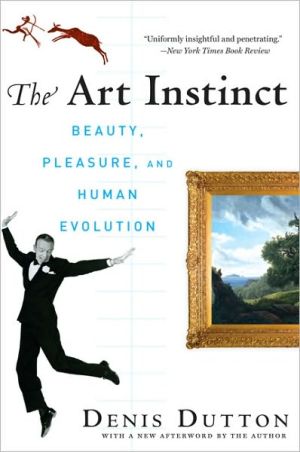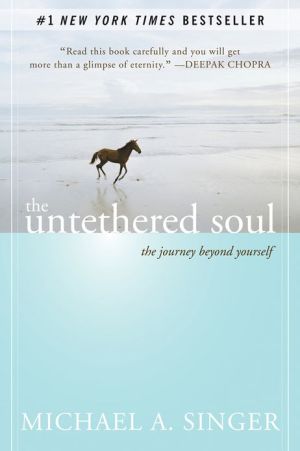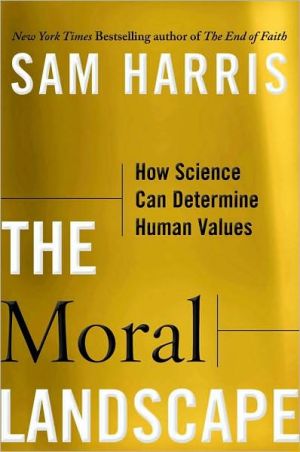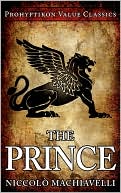Art Instinct: Beauty, Pleasure, and Human Evolution
The Art Instinct explores two fascinating and contentious fields-art and evolutionary science-in a provocative work that will change forever the way think about the arts, from Polynesian carvings to Pride and Prejudice.\ Human tastes in art, Denis Dutton argues, are evolutionary traits, shaped by natural selection. Our love of beauty is inborn, and many aesthetic preferences are universal-such as the one for landscapes that feature water and distant trees, like the savannah where we first...
Search in google:
The Art Instinct combines two of the most fascinating and contentious disciplines, art and evolutionary science, in a provocative new work that will revolutionize the way art itself is perceived. Aesthetic taste, argues Denis Dutton, is an evolutionary trait, and is shaped by natural selection. It's not, as almost all contemporary art criticism and academic theory would have it, "socially constructed." The human appreciation for art is innate, and certain artistic values are universal across cultures, such as a preference for landscapes that, like the ancient savannah, feature water and distant trees. If people from Africa to Alaska prefer images that would have appealed to our hominid ancestors, what does that mean for the entire discipline of art history? Dutton argues, with forceful logic and hard evidence, that art criticism needs to be premised on an understanding of evolution, not on abstract "theory." Sure to provoke discussion in scientific circles and an uproar in the art world, The Art Instinct offers radical new insights into both the nature of art and the workings of the human mind. The Barnes & Noble Review God bless contrarians. When the chumps in the audience start clapping on the downbeat, it's the contrarians who score one for hipness by hitting the backbeat; roving around like members of some cerebral street gang, they buck trends, scorn fashions -- always smirking -- and generally look for a thinker's scrap where first principles can be upended. Contrarianism can, of course, become a lazy fetish; dogmatically taking the unpopular side of every issue is an easy way to get attention, if you don't mind criticism. But at its best, contrarianism means arriving at one's own conclusions -- the best argument wins -- regardless of whether others agree, and especially when they don't. This spirit occasionally produces books that are as bracing as a good, hard slap.
Introduction 11 Landscape and Longing 132 Art and Human Nature 293 What Is Art? 474 "But They Don't Have Our Concept of Art" 645 Art and Natural Selection 856 The Uses of Fiction 1037 Art and Human Self-Domestication 1358 Intention, Forgery, Dada: Three Aesthetic Problems 1649 The Contingency of Aesthetic Values 20310 Greatness in the Arts 220Acknowledgments 245Notes 247Bibliography 259Index 269
\ Anthony GottliebAlthough he endorses the popular form of evolutionary psychology in principle, [Dutton's] practice is more nuanced. His discussion of the arts and of our responses to them is uniformly insightful and penetrating, and I doubt whether much of it really depends on the ideas of evolutionary psychology. His considered view (though he sometimes strays into more ambitious explorations) is that Darwinian aesthetics sheds light on literature, music and painting not by demonstrating them to be evolutionary adaptations, but by showing how their existence and character are connected to prehistoric preferences, interests and capacities. This is a reasonable aim…\ —The New York Times\ \ \ \ \ Jonah LehrerDutton is an elegant writer, and his book should be admired for its attempt to close the gap between art and science. It really is time that art critics learn about the visual cortex, musicologists study the inner ear and evolutionary psychologists unpack Jane Austen.\ —The Washington Post\ \ \ Kirkus ReviewsPugnacious, witty and entertaining first book by prolific essayist and critic Dutton (Philosophy of Art/Univ. of Canterbury, New Zealand), who founded the influential blog Arts & Letters Daily. Picking up where evolutionary psychologists like Steven Pinker leave off in their investigations into the origins of human language and other mental phenomena, Dutton argues that the arts too-why and how they are made, how they are experienced, why in all their myriad forms they are so central to human life in every culture and age-can be explained by Darwinian natural and sexual selection. He plausibly suggests how a nearly universal taste for paintings of rolling landscapes, dotted with trees, bodies of water and animals, may be a relic of our Pleistocene ancestors' evolutionarily successful preference for the savannas of Africa, where game and safe prospects to view it from were plentiful. He makes the case for fiction's origins in the adaptive advantage to our ancestors of imagining scenarios they would not actually have to live through as an aid to planning for survival. He cites work from evolutionary psychologists to show how the art instinct, like the peacock's tail, may have developed as a "fitness signal" to mark the prehistoric artist as an abundantly healthy mate. After a century of criticism that divorced art from ordinary human experience-either placing its definition in the hands of institutions like museums and university art departments or reducing it to authorless "texts" that defy consistent interpretation from critic to critic-Dutton wants to shift the discussion about art to more common, solid ground. He treads shakily when he tries to use his Darwinian aesthetics to justifyhis own (vehemently anti-modernist) tastes, but even those who disagree with these opinions will find his manifesto scintillatingly written and not to be missed-even the end notes are indispensable. Promises to instigate a lively conversation about the origins and meaning of art, not only among the author's peers in academia, but also in the culture at large. Agent: John Brockman/Brockman\ \ \ \ \ The Barnes & Noble ReviewGod bless contrarians. When the chumps in the audience start clapping on the downbeat, it's the contrarians who score one for hipness by hitting the backbeat; roving around like members of some cerebral street gang, they buck trends, scorn fashions -- always smirking -- and generally look for a thinker's scrap where first principles can be upended. Contrarianism can, of course, become a lazy fetish; dogmatically taking the unpopular side of every issue is an easy way to get attention, if you don't mind criticism. But at its best, contrarianism means arriving at one's own conclusions -- the best argument wins -- regardless of whether others agree, and especially when they don't. This spirit occasionally produces books that are as bracing as a good, hard slap.\ Denis Dutton's The Art Instinct, an elegant, slim, forcefully argued piece of scholarship, is in many was the natural next step in a contrarian career. Dutton is an American expatriate living in New Zealand, where he teaches aesthetics and philosophy. He is infamous in many ports, not least for his hilarious Bad Writing Contest, which shamed humanities departments by spotlighting the most impenetrable, jargon-laden sentences in academic journals. But he is best known for founding the indispensable web site Arts & Letters Daily, which assembles news and magazine articles that meet a single criterion: making a good case. The pieces range widely, from analyzing George Bush's nostrils to puzzling over the dearth of Protestants living in Wittenberg, the birthplace of the Reformation. Hours surrender to the site like tokens to a gumball machine. Dutton has excellent taste.\ And a good thing, too, because The Art Instinct is an exploration of human taste. The book's provocative thesis is that our propensity for creating music, literature, drama, and the visual arts is the product of Darwinian evolution, and that our taste in art arises not from cultural indicators but from universal, innate preferences. This argument doesn't come from out of nowhere -- Dutton openly builds upon and complements the work of linguist Steven Pinker, for one -- but the book advances it aggressively and persuasively, even if many questions remain. The Art Instinct also undercuts some fundamental premises in disciplines like cultural studies and anthropology. Expect some nasty reviews.\ Dutton begins with natural selection, the focus of Darwin's On the Origin of Species. Simply because our ancestors enjoyed music or myth does not mean that nature selected for these abilities; only characteristics that helped individuals survive would persist through the generations. But Dutton contends that certain artistic propensities would have done just that. A storyteller, for instance, conjures up "possible but nonexistent states of affairs" -- not unlike a Pentagon war-gamer:\ This faculty for imaginative practical reasoning obviously had immense survival value in the ancestral environment, enabling hunter-gatherer bands who were especially adept at it to exploit opportunities, cope with threats, and outplan and outcompete less articulate and imaginative groups and individuals.\ It is open to question whether the best storytellers also make able orienteers; place your Dan Brown action figure in the jungle and see how far it gets. But it is not altogether implausible to suggest that both types of creativity -- artistic and practical -- overlapped somewhat, conferring survival advantage upon our forebears.\ Natural selection is one thing, but the stronger, and more entertaining, basis for Dutton's case for an evolutionary aesthetics is sexual selection, which Darwin explored in The Descent of Man. A clear tenor voice wouldn't help Pleistocene man outrun a jaguar, but it might ingratiate him with the ladies -- remember the guitarist on the stairs in Animal House? -- allowing him to spread his genes widely and spot the savanna with little Pavarottis. Dutton describes the possession of artistic talent as "an ornamental capacity analogous to the peacock's tail" -- or to a florid vocabulary. These traits signal a certain robustness or intelligence, which are attractive qualities in a potential mate.\ If the theories themselves are provocative, it is their implications that will rile many readers, even though here Dutton is at his best, arching an eyebrow and knocking over all sorts of treasures. A Darwinian aesthetics teaches that an author's intentions do matter (an unfashionable view) because our appreciation of art invariably builds upon our admiration for its author's creative or technical abilities; hence our feeling of betrayal in cases of forgery. The Darwinian view would also spurn the prevailing academic trend that rejects the universality of art in favor of an unknowable exoticism in foreign works. And whereas cynics look at the profusion of landscape scenes in wall calendars and see a banal trend manufactured by the capitalistic calendar industry, Dutton sees our innate preferences reflected: an attraction to ready water sources, vantage points, and easily climbed trees.\ Dutton's hypotheses -- they certainly cannot yet be described as proven theories -- about the survival advantage of storytellers and the reproductive edge of artists are fascinating, but less important than his broader, and compelling, idea of an evolutionary basis to the arts. Unless you are inclined to believe that an omniscient creator bestowed on some people angelic voices to fill his cathedrals with heavenly airs, there must be some scientific explanation for artistic talent. But this is a young field, so it is prudent that Dutton sends up only a few test balloons and spends most of his time delineating broader contours. He also makes important concessions, acknowledging, for instance, the confounding resistance of music to natural selection theory: pitched sounds are elusive in nature, so the ability to decipher or deploy them would not help anyone survive. In the tradition of all pathbreaking scholarship, The Art Instinct is therefore an invitation to further study rather than the final word.\ Ah, but there's no accounting for taste. If sexual selection shaped human character by favoring high artistic talent, why does the average young woman spend her evenings watching clumsy footwork on Dancing with the Stars rather than attending the symphony on the arm of a clever sculptor? Then again, among young men of a certain literary sensibility, find me one who doesn't have a wee crush on the novelist Zadie Smith. On Beauty, indeed. --Michael O'Donnell\ Michael O'Donnell has written for Bookforum, the Los Angeles Times, the Christian Science Monitor, and the San Francisco Chronicle, among other publications. He recently completed a clerkship for a federal judge and is now an attorney in private practice in Chicago.\ \ \








